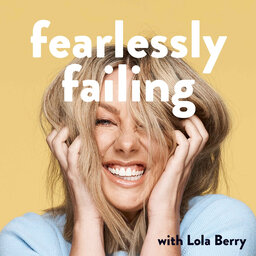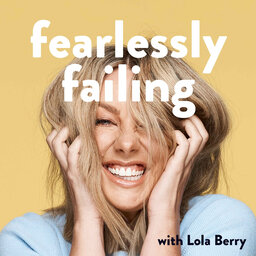711. Fearlessly Failing - Jenny Valentish: An Introverts Guide to Leaving the House
Meet Jenny; she's a writer, journo and podcaster. And she's just bought a book that I think you'll like. It's called "An Introverts Guide to Leaving the House." It's advice and a toolkit of sorts for introverts. It will help you to navigate pretty much any social scenario.
One of my fave chapters is called "How to hit a party like a SWAT team" because I don't know about you, but I don't like going to big parties, I just get so awkward and don't know what to do with myself. These tips and tricks are easy to implement and since reading the book I've already changed the way I approach larger social gatherings.
Jenny, thank you for the honest and kind chat, i hope this book flys and I'm sure it will! And thank you for teaching me that I'm a high-masking introvert. Because I seem like an extrovert but deep down I'm an introvert.
If you'd like to get your hands on Jenny's newest book, it's officially available in Australia and NZ tomorrow. You can order your copy here!
And you can follow Jenny's journey on insta too. She's also completed in body building and loves all things fitness. Follow Jenny here!
Big love, and thank you for jumping on the pod
Lola Lola's insta
 Fearlessly Failing with Lola Berry
Fearlessly Failing with Lola Berry


